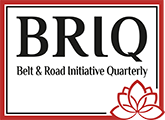EDITORIAL
The COVID-19 pandemic has revealed the importance of the key skills that human beings acquired in the course of their evolution: Solidarity and sharing!
In the history of humanity for thousands of years, we have developed to the extent that we cooperate, and we have become human to the extent that we share. In order to succeed in fighting the pandemic, it is now clearly seen that collective behavior is compulsory. Furthermore, it is understood that the success of a country against the pandemic will also benefit other countries as well.
When confronting the pandemic, the governments of the countries within the Atlantic system faced the question of which one comes first, human beings or markets, and they made their choices in favor of markets. The dire consequences of this choice can be assessed by reference to several examples from Italy, England, Spain, France, and especially, the USA. Profit-oriented health systems collapsed during the fight against the pandemic. In the imperialist centers, moreover, the pandemic agenda expanded to include other crucial issues such as the explosion of unemployment, racism, and mass protests. All of this led to large-scale economic and social instability, which is expected to continue in the long term.
By contrast, China has shown tremendous success in the fight against the pandemic. Even isolating the Hubei province from the rest of the country in order to prevent the spread of the virus all over the country was highly critical by itself. Moreover, China has exhibited an exemplary stance in terms of international solidarity. It has provided medical staff and equipment to major developed countries. What is more, it has frozen the debt of poor countries, which have been suffering from the COVID-19 outbreak. From the perspective of the system of individual profit and interest, it would be impossible to make sense of China’s attitude and unique success against the pandemic. The secret of China’s success as a whole lies in its public-driven/popular state and its social system organized from the bottom-up. A key concept that can explain China’s international approach is “shared development”, which also happens to be the main motto of the Belt and Road Initiative.
Turkey also fought against the pandemic and was successful thanks to its strong institutional infrastruc-ture and human resources inherited from the Atatürk Revolution. Turkey, as a developing country, supplied medical aid to 125 different countries, including the USA and UK.
The COVID-19 pandemic also showed that nation-states can overcome cross-border problems through cooperation on the basis of equality, common benefit, and shared development.
As a result, one could argue that the crux of the issue is what to prioritize: the profits of monopolies and the stability of the financial markets or an economic model based on the production of essential human needs.
The COVID-19 outbreak has revealed the collapse of neoliberalism, which disintegrates nation-states in the developing world, both economically and culturally. Asia is now home to newly proliferating values such as the public interest, solidarity, shared development, socialism, and collaboration on the basis of equality among nation-states. These values stand in contrast to the socioeconomic model of the Atlantic system, which is rooted in individualism and profit maximization.
***
BRIQ is closer to achieving the goals announced in its first issue, particularly that of crossing the con-tinents. Our current issue features articles by prominent authors from Australia, Europe, and Latin America.
From this issue on, we will create a special section on History, featuring original historical documents that address interactions among developing countries, in their struggle for revolution and liberation.
We greatly value the intellectual contribution of our Advisory Board, whose members also include the rep-resentatives of the Eurasian business community. Therefore, our current issue features interviews with Ethem Sancak and Cankut Bagana, our Advisory Board members.
This issue also includes an interview with the President of Yunus Emre Institute, Prof. Dr. Şeref Ateş. Prof. Dr. Ateş describes the COVID-19 HUB established within the Institute and its functions in order to share information between countries in the fight against the pandemic.
FİKRET AKFIRAT
Editor-in-Chief
